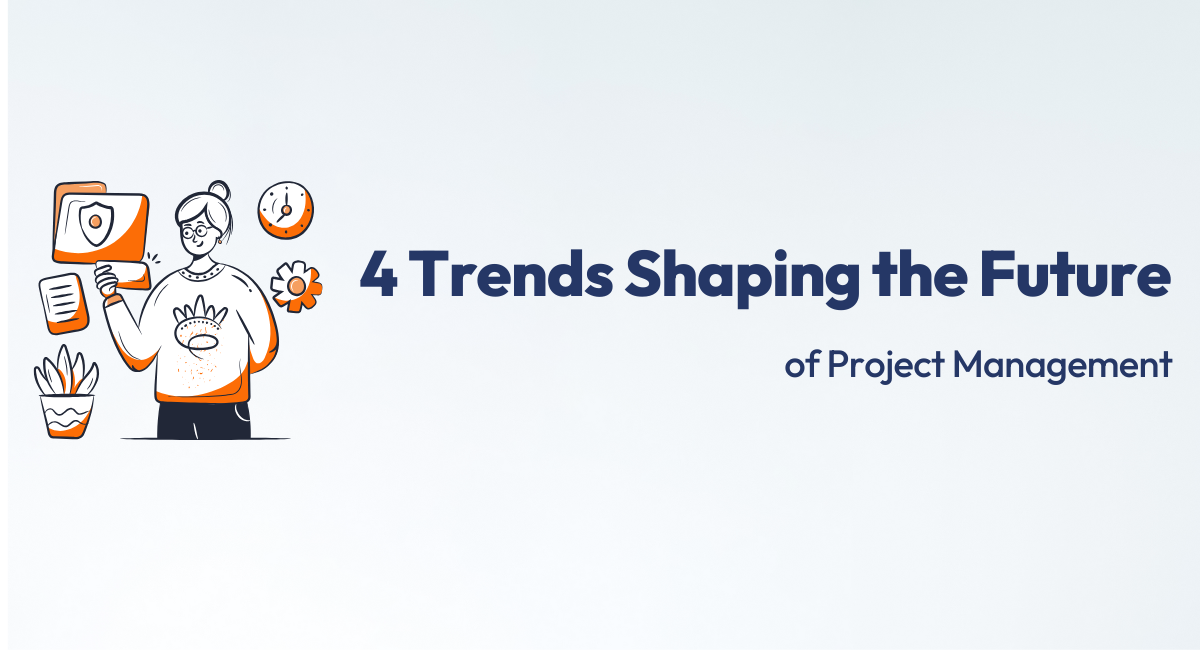Project Management 2.0: How AI, Hybrid Methods, and Human-Centric Approaches Are Revolutionizing the Future of Work
The landscape of project management is undergoing a remarkable transformation, driven by the convergence of artificial intelligence, evolving work methodologies, and an increased focus on human-centric approaches. As we navigate through 2025, these changes are reshaping how organizations approach project delivery and team collaboration.
The AI Revolution in Project Management
Artificial intelligence has become an indispensable tool in modern project management, fundamentally changing how projects are planned, executed, and monitored. According to recent studies, over 60% of organizations have integrated AI-powered tools into their project management workflows, leading to significant improvements in efficiency and decision-making processes.

Key AI applications in project management include:
- Predictive analytics for risk assessment
- Automated resource allocation and scheduling
- Real-time project performance monitoring
- Intelligent decision support systems
- Natural language processing for documentation and reporting
The Rise of Hybrid Methodologies
The traditional divide between agile and waterfall methodologies is dissolving, giving way to more flexible, hybrid approaches. Organizations are increasingly adopting customized frameworks that combine the best elements of various methodologies to suit their specific needs.
Key characteristics of hybrid project management:
- Flexible sprint planning with structured milestones
- Balanced documentation requirements
- Adaptive governance frameworks
- Integration of traditional and agile tools
- Customizable workflow processes
Human-Centric Project Management
Despite the technological advancement, the human element remains central to successful project management. Organizations are increasingly recognizing that technology should enhance, not replace, human capabilities. The World Economic Forum's Future of Jobs Report 2025 emphasizes the importance of human skills in the digital age.

Essential human-centric elements include:
- Emotional intelligence and empathy in leadership
- Focus on team well-being and work-life balance
- Enhanced communication and collaboration tools
- Continuous learning and skill development
- Inclusive decision-making processes
Data-Driven Decision Making
Modern project management relies heavily on data analytics to drive decision-making. Organizations are leveraging advanced analytics tools to:
- Monitor project health in real-time
- Identify potential risks before they materialize
- Optimize resource allocation
- Track team performance and productivity
- Measure project ROI more accurately
Sustainability and Social Responsibility
Environmental, Social, and Governance (ESG) considerations are becoming integral to project management. Organizations are increasingly incorporating sustainability metrics into their project planning and execution processes.
Key sustainability trends include:
- Carbon footprint tracking in project planning
- Social impact assessment
- Sustainable resource management
- Ethical supply chain considerations
- Community engagement initiatives
Remote and Hybrid Work Integration
The evolution of work environments has necessitated new approaches to project management. Teams are now more distributed than ever, requiring:
- Enhanced digital collaboration tools
- Asynchronous communication strategies
- Virtual team building activities
- Cloud-based project management platforms
- Flexible work scheduling
Skills for the Future
Project managers must continuously evolve their skill sets to remain effective in this changing landscape. Essential skills for 2025 and beyond include:
- AI and automation literacy
- Data analysis and interpretation
- Digital leadership capabilities
- Change management expertise
- Cross-cultural communication
- Adaptive problem-solving
The Path Forward
As we continue through 2025, successful project management will require a balanced approach that leverages technology while maintaining a strong focus on human elements. Organizations must stay agile and adaptive, ready to embrace new tools and methodologies while ensuring their teams remain engaged and productive.
The future of project management lies in creating synergies between artificial intelligence, hybrid methodologies, and human-centric approaches. This combination will enable organizations to deliver projects more effectively while maintaining team satisfaction and ensuring sustainable outcomes.
Ready to enhance your project management skills for the future? Explore our comprehensive range of courses and resources at 01TEK. From AI integration to human-centric leadership, we offer the tools and knowledge you need to stay ahead in the evolving world of project management. Visit 01TEK today to begin your journey toward project management excellence.
Sources: 1. World Economic Forum Future of Jobs Report 2. McKinsey AI Workplace Report 3. Project Management Trends 2025 4. Gartner Future of Work 5. IBM AI and Future of Work
You’ve got to stop doing all the things that people have tried, tested, and found out don’t work.
Michael Dunlop



